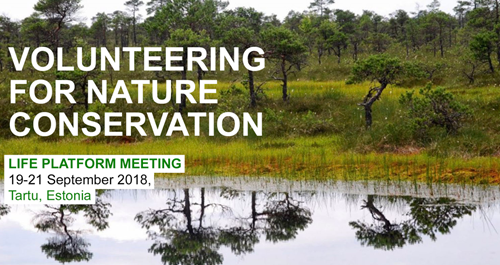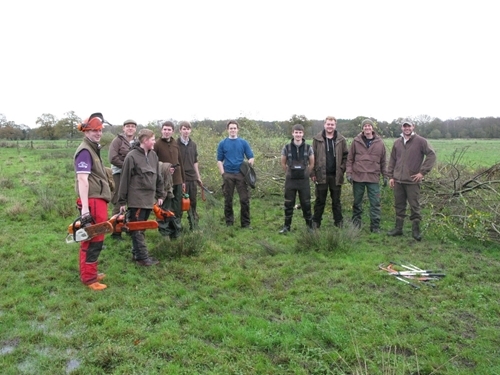
We were recently asked by EU LIFE to attend a conference focused on Volunteering for Nature Conservation. This meant a trip to the LIFE Mires Estonia, Tartu Wetlands, Estonia for our Project Administrator Paul Stephens, who gave a talk about our volunteers here in the Avon Valley (it’s a difficult life, though this is probably Paul’s one trip out this year away from mountains of paperwork…so thanks Paul!).

The UK, like Estonia has a strong volunteer culture and the concept of conservation volunteering is certainly nothing new. But have you ever asked the question, ‘where would nature conservation sites and projects be in the UK without volunteers’? And, who do we mean by ‘volunteers’?
The general reasons for volunteering in conservation varies from person to person, from wanting to increase knowledge and skills, to taking part as a social activity, gaining wellbeing by connecting with nature and contributing to the conservation of our natural history. For many of our volunteers it is the latter two, especially if they have seen this change in their neighbourhood, farm or beat.
Many other conservation organisations in the UK use volunteer groups to conduct a range of work, principally on their own reserves. This is brilliant, and no one can argue that this contributes significantly to the recovery and resilience of British biodiversity and our knowledge of it. But, as we do not own land at GWCT, within the LIFE Waders For Real project we do things a bit differently. Our volunteers are our farmers, gamekeepers, committed students from Sparsholt College and other Universities doing work on private land.
We utilise our volunteers for a range of tasks within our project, be that one of our farmers giving up their time to dig scrapes on the project area (and we all know how little free time farmers get!), students from Sparsholt college helping us to coppice willow scrub or remove dead in-field trees, or a committed gamekeeper keeping track of his nesting Lapwing to give our ecologists a head start. It is estimated by the Government that there are around seven and a half million hours of wildlife conservation work carried out by volunteers every year in the UK, with the value of this time and effort amounting to over £8 million per annum.

Figure 1: Sparsholt Game-Keeping students felling trees and clearly scrub on one of our wader hotspot sites.
Mobilising volunteer time has enabled us to conduct activities which would not have otherwise been possible to the same extent within the project, in particularly the crucial ground work to improve wader breeding habitat in the valley. It has also given our volunteers a greater awareness of conservation practice and allowed them to take ownership of the process of wader recovery.
We are indebted to these additional members of our team: our farmers, gamekeepers and committed students. It could be said that the primary goal now is for nature conservation organisations to keep inspiring upcoming generations about nature conservation and the British tradition of giving up time to help nature thrive.
A Volunteers experience
A summary of her volunteering experience – recently hired Research Assistant, Jodie Case.
Want to learn more about Waders For Real?
Visit the Waders For Real website and get all the latest project updates on Twitter and Facebook